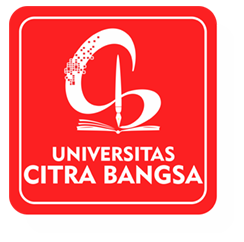PERANCANGAN SISTEM E-LEARNING KATEKISASI BERBASIS WEB PADA GEREJA GMIT MARANATHA OEBUFU
Keywords:
E-Learning , catechism learning management, SDLC, PrototypeAbstract
Manase Bauana 2020 , Designing a Web- Based Catechism E-Learning System at the Maranatha Oebufu GMIT Church . Lecturer Supervisor I John Einstein , Kom ., M.Cs and lecturer Supervisor II Asti Yunita Benu , S.Pd ., M.Pd .
E-Learning is one of the forms of education that combine motivation , communication , efficiency and technology . However , along with the times , E-Learning can also be used by the general public , especially in the Church environment . Based on a review at the Oebufu Maranatha GMIT Church .
Researchers discovered the problem at the time of teaching catechism among other things: a lot of the content of the Bible that should be studied , while the time of learning is very short ie a week once . So much the content of the Bible that do not have time to in the study as a whole because of passages book or material catechism only be obtained from the teacher at the time of learning in church , time for teachers is very short .
The aim is to make it easier for teachers to present Catechism learning materials through Website - based E-Learning and to make it easier for catechism members to learn learning materials . The method that is used in the development of the system is SDLC ( Software Development Live Cycle ) with engineering prototype.
The results of the research it is a system of e-learning -based website that facilitates faculty and members of the teaching catechism . The results of system testing on the usability aspect obtained a percentage of 82 , 04 % ( Very good or feasible ).
Downloads
Downloads
Published
How to Cite
Issue
Section
License
Every works in JUMPIKA is licensed under a Creative Commons Attribution-ShareAlike 4.0 International License.
Authors who publish with this journal agree to the following terms:
- Authors retain copyright and grant the journal right of first publication with the work simultaneously licensed under a Creative Commons Attribution License that allows others to share the work with an acknowledgment of the work's authorship and initial publication in this journal.
- Authors are able to enter into separate, additional contractual arrangements for the non-exclusive distribution of the journal's published version of the work (e.g., post it to an institutional repository or publish it in a book), with an acknowledgment of its initial publication in this journal.
- Authors are permitted and encouraged to post their work online (e.g., in institutional repositories or on their website) prior to and during the submission process, as it can lead to productive exchanges, as well as earlier and greater citation of published work (See The Effect of Open Access).




